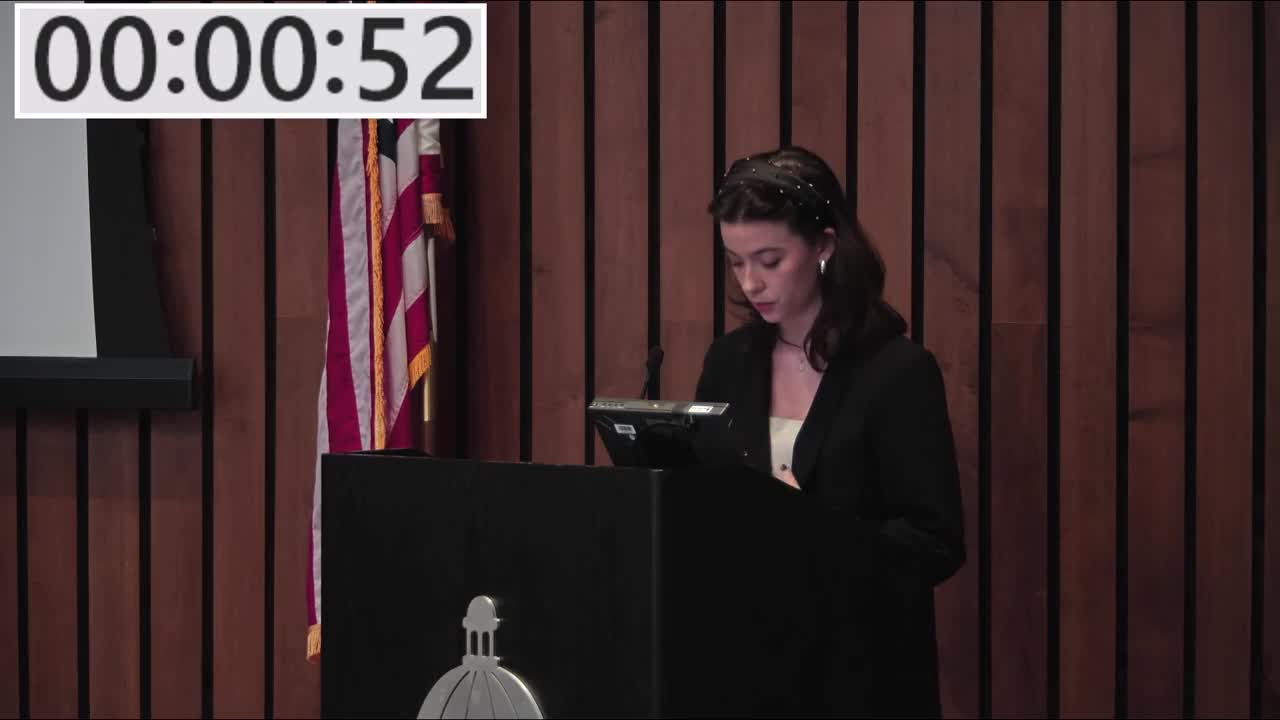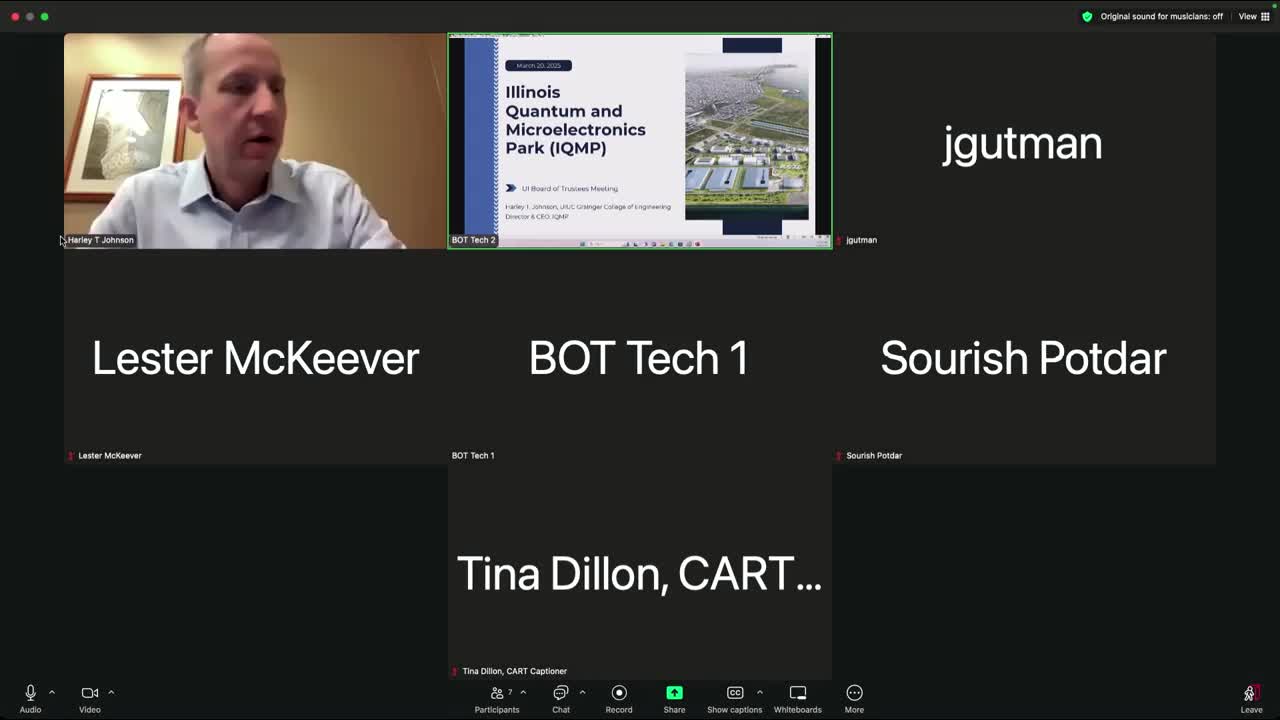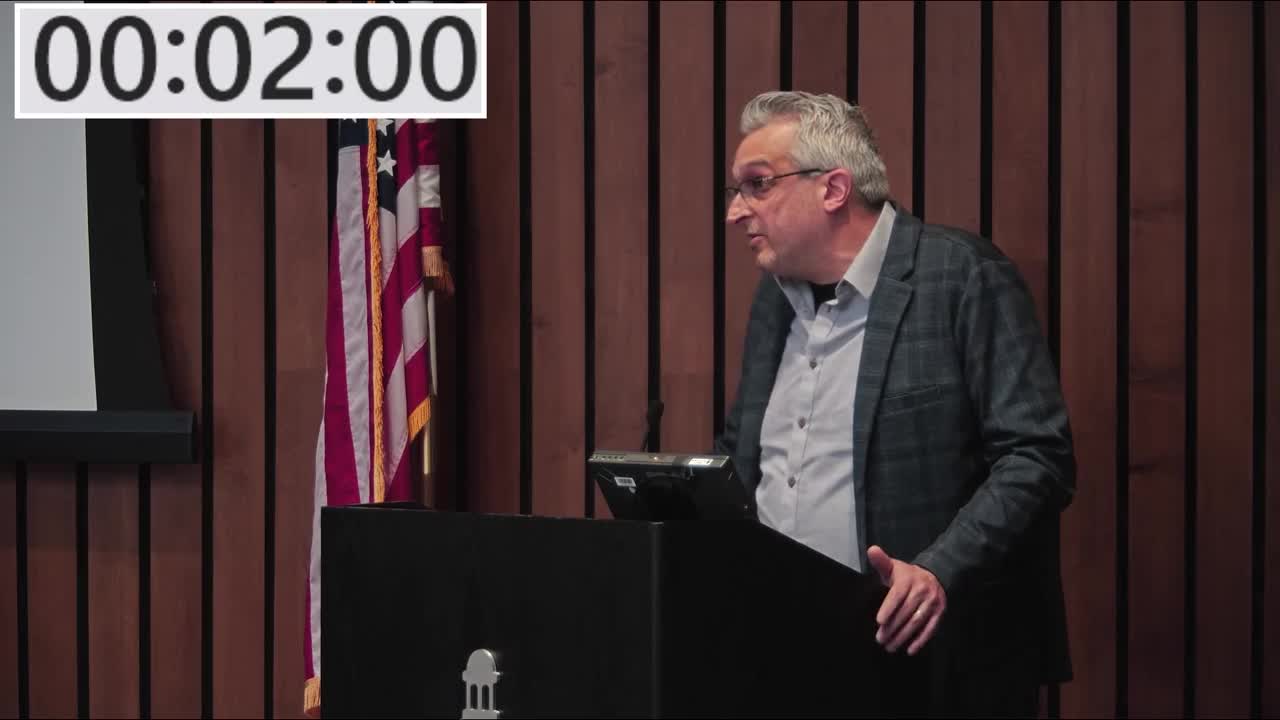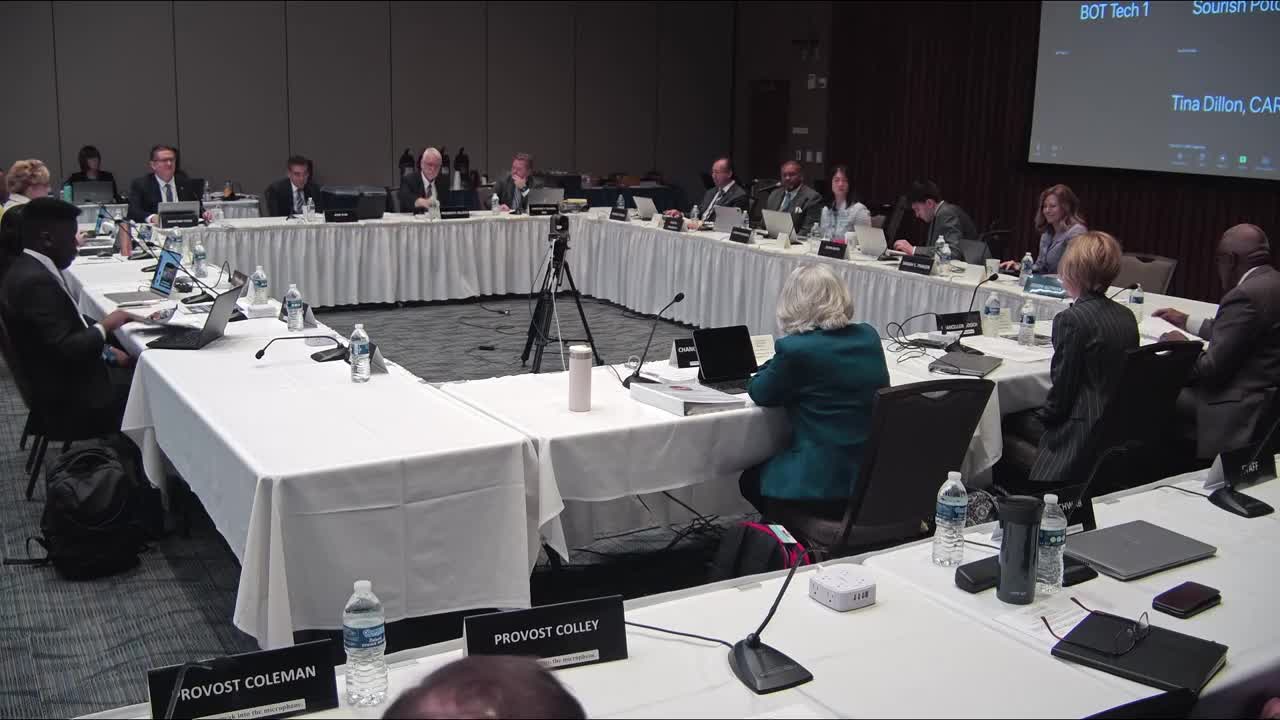Article not found
This article is no longer available. But don't worry—we've gathered other articles that discuss the same topic.

Trustees approve committee‑recommended items, construction projects and academic program actions in unanimous votes

Board hears update on Illinois Quantum and Microelectronics Park; delegates predevelopment authority for National Quantum Facility

Three public commenters urge paid parental leave, budget transparency at UIS and fossil fuel divestment

